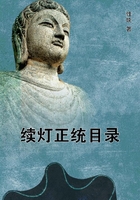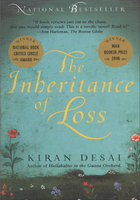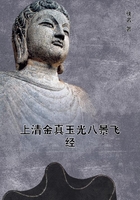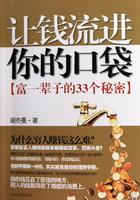And certainly it was here necessary to travel over a country without water, and full of sand, to overcome their enemies, and, during these battles, to preserve their children, and their wives, and their prey; on all which occasions he became an excellent general of an army, and a most prudent counselor, and one that took the truest care of them all; he also so brought it about, that the whole multitude depended upon him. And while he had them always obedient to what he enjoined, he made no manner of use of his authority for his own private advantage, which is the usual time when governors gain great powers to themselves, and pave the way for tyranny, and accustom the multitude to live very dissolutely; whereas, when our legislator was in so great authority, he, on the contrary, thought he ought to have regard to piety, and to show his great good-will to the people;and by this means he thought he might show the great degree of virtue that was in him, and might procure the most lasting security to those who had made him their governor. When he had therefore come to such a good resolution, and had performed such wonderful exploits, we had just reason to look upon ourselves as having him for a divine governor and counselor. And when he had first persuaded himself (17) that his actions and designs were agreeable to God's will, he thought it his duty to impress, above all things, that notion upon the multitude; for those who have once believed that God is the inspector of their lives, will not permit themselves in any sin. And this is the character of our legislator: he was no impostor, no deceiver, as his revilers say, though unjustly, but such a one as they brag Minos (18) to have been among the Greeks, and other legislators after him; for some of them suppose that they had their laws from Jupiter, while Minos said that the revelation of his laws was to be referred to Apollo, and his oracle at Delphi, whether they really thought they were so derived, or supposed, however, that they could persuade the people easily that so it was. But which of these it was who made the best laws, and which had the greatest reason to believe that God was their author, it will be easy, upon comparing those laws themselves together, to determine; for it is time that we come to that point. (19)Now there are innumerable differences in the particular customs and laws that are among all mankind, which a man may briefly reduce under the following heads: Some legislators have permitted their governments to be under monarchies, others put them under oligarchies, and others under a republican form; but our legislator had no regard to any of these forms, but he ordained our government to be what, by a strained expression, may be termed a Theocracy, (20) by ascribing the authority and the power to God, and by persuading all the people to have a regard to him, as the author of all the good things that were enjoyed either in common by all mankind, or by each one in particular, and of all that they themselves obtained by praying to him in their greatest difficulties. He informed them that it was impossible to escape God's observation, even in any of our outward actions, or in any of our inward thoughts. Moreover, he represented God as unbegotten, (21) and immutable, through all eternity, superior to all mortal conceptions in pulchritude;and, though known to us by his power, yet unknown to us as to his essence. I do not now explain how these notions of God are the sentiments of the wisest among the Grecians, and how they were taught them upon the principles that he afforded them. However, they testify, with great assurance, that these notions are just, and agreeable to the nature of God, and to his majesty; for Pythagoras, and Anaxagoras, and Plato, and the Stoic philosophers that succeeded them, and almost all the rest, are of the same sentiments, and had the same notions of the nature of God; yet durst not these men disclose those true notions to more than a few, because the body of the people were prejudiced with other opinions beforehand. But our legislator, who made his actions agree to his laws, did not only prevail with those that were his contemporaries to agree with these his notions, but so firmly imprinted this faith in God upon all their posterity, that it never could be removed. The reason why the constitution of this legislation was ever better directed to the utility of all than other legislations were, is this, that Moses did not make religion a part of virtue, but he saw and he ordained other virtues to be parts of religion; I mean justice, and fortitude, and temperance, and a universal agreement of the members of the community with one another; for all our actions and studies, and all our words, [in Moses's settlement,] have a reference to piety towards God; for he hath left none of these in suspense, or undetermined. For there are two ways of coining at any sort of learning and a moral conduct of life;the one is by instruction in words, the other by practical exercises. Now other lawgivers have separated these two ways in their opinions, and choosing one of those ways of instruction, or that which best pleased every one of them, neglected the other. Thus did the Lacedemonians and the Cretians teach by practical exercises, but not by words; while the Athenians, and almost all the other Grecians, made laws about what was to be done, or left undone, but had no regard to the exercising them thereto in practice.
同类推荐
热门推荐
The Inheritance of Loss
In a crumbling, isolated house at the foot of Mount Kanchenjunga in the Himalayas lives an embittered judge who wants only to retire in peace, when his orphaned granddaughter, Sai, arrives on his doorstep. The judge's cook watches over her distractedly, for his thoughts are often on his son, Biju, who is hopscotching from one gritty New York restaurant to another. Kiran Desai's brilliant novel, published to huge acclaim, is a story of joy and despair. Her characters face numerous choices that majestically illuminate the consequences of colonialism as it collides with the modern world.城市黄昏里的一只候鸟
李铭的作品并不刻意的追求和营造思想或是主题的深度,只是对底层进行原生态的书写,用亲身的体验抵达底层生活的深度。因此,李铭作品的意义就在于展示和揭开被现代城市文明所遮蔽的苦难,被社会和历史忽略了的底层民众的生存状态。尤其是他的进城务工文学,他以真切的“底层生存写作”带有纪实性的记录了那些生存在城市里的异乡人。小保姆二燕子怀孕了,男主人被迫屈服。谁将对她的未来和幸福负责,在城市的黄昏里,她注定变成一只候鸟。除了掉落高楼,还能有什么更好的办法?就像同样命运的春草,她沦为男人生孩子的工具。从水深到火热,这里的女人,还是难以逃脱命运的捉弄。追妻无门:女boss不好惹
青涩蜕变,如今她是能独当一面的女boss,爱了冷泽聿七年,也同样花了七年时间去忘记他。以为是陌路,他突然向他表白,扬言要娶她,她只当他是脑子抽风,他的殷勤她也全都无视。他帮她查她父母的死因,赶走身边情敌,解释当初拒绝她的告别,和故意对她冷漠都是无奈之举。突然爆出她父母的死居然和冷家有丝毫联系,还莫名跳出个公爵未婚夫,扬言要与她履行婚约。峰回路转,破镜还能重圆吗? PS:我又开新文了,每逢假期必书荒,新文《有你的世界遇到爱》,喜欢我的文的朋友可以来看看,这是重生类现言,对这个题材感兴趣的一定要收藏起来。















